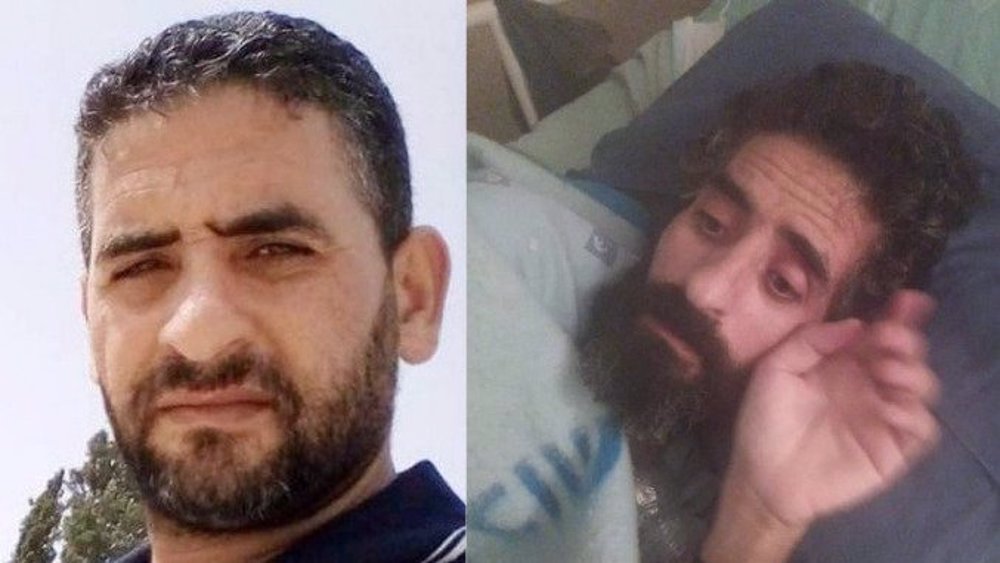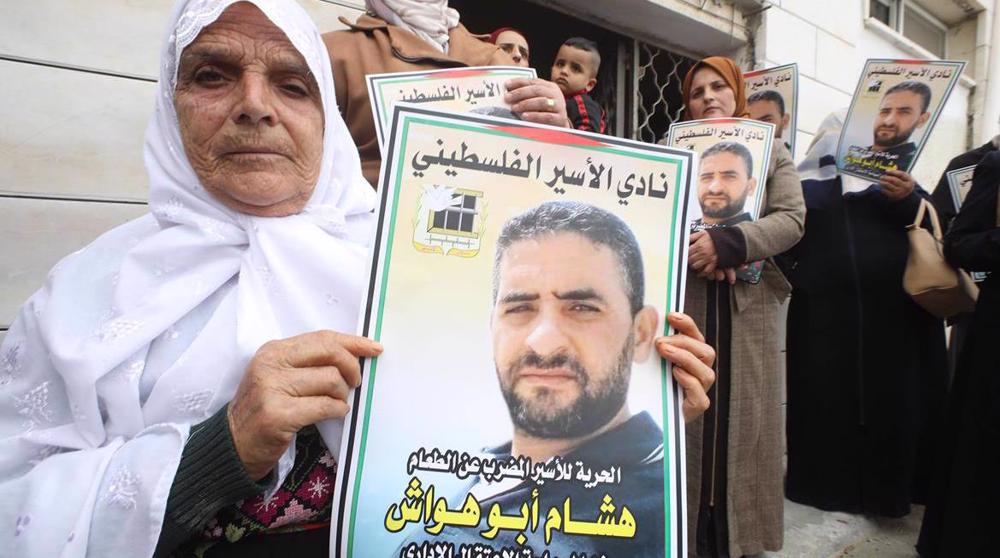Palestinian inmate’s condition deteriorates on 135th day of hunger strike: Report
The health of Palestinian prisoner Hisham Abu Hawash has deteriorated as he has entered the 135th consecutive day of his hunger strike against Israel's policy of so-called administrative detention, with reports saying the 40-year-old has lost his eyesight and hearing as well as his ability to speak.
Online news portal Middle East Eye said in a post on its Twitter account on Tuesday, "Health of Palestinian prisoner Hisham Abu Hawash deteriorates as he enters 135th day of hunger strike."
The news portal added, "Abu Hawash is protesting his indefinite incarceration without trial under Israel's controversial administrative detention practice."
Health of Palestinian prisoner Hisham Abu Hawash deteriorates as he enters 135th day of hunger strike.
— Middle East Eye (@MiddleEastEye) December 28, 2021
Abu Hawash is protesting his indefinite incarceration without trial under Israel’s controversial administrative detention practice. pic.twitter.com/kSUMvMtCKo
Accompanying the tweet is a video that shows Palestinian activist Hanady Halawani in the hospital room where 40-year-old Abu Hawash is kept.
Describing Abu Hawash's health condition, Halawani says, "He has lost his eyesight and hearing. He can't speak. He was not allowed to shower for 70 days. His wife was not granted permission to visit him. He is not only in a critical condition; it's beyond critical."
Abu Hawash is one among several other hunger-striking Palestinians who are demanding an end to Israel's illegal administrative detention policy.
The official Palestinian news agency WAFA reported on Sunday that the Israeli occupation authorities had issued a decision to freeze the administrative detention order against Abu Hawash.
An attorney for the Palestinian Prisoners Society (PPS), Jawad Boulos, said the 40-year-old Palestinian inmate had decided to continue his hunger strike despite his deteriorating health condition until the order is canceled.
The PPS said the freezing decision does not mean ending Abu Hawash's administrative detention in any way but rather means that the Israeli Prison Service (IPS) and Israel's internal spy agency Shin Bet are no longer responsible for the hunger-striking prisoner's life and fate.
More than 7,000 Palestinians are reportedly held in Israeli jails. Hundreds of them have apparently in "administrative detention." Some prisoners have been held that way for up to 11 years. Palestinian detainees have continuously resorted to open-ended hunger strikes in an attempt to express their outrage at the practice.
Over a dozen Palestinian lawmakers and nearly 20 journalists are also held in Israeli detention centers, several of them under the same detention policy.
In 2015, Israel approved a law that authorizes force-feeding the Palestinian prisoners on hunger strike, a practice rejected by the UN as a violation of human rights.
The United Nations and the International Committee of the Red Cross (ICRC), as well as many human rights group have frequently expressed serious concern about the hunger strikers' health condition and call for their immediate release.
VIDEO | Press TV's news headlines
Iran FM: Response to Israeli aggression 'inevitable'
VIDEO | Iran eases the rules for exporting hand-woven carpets
VIDEO | Intl. Day for the Elimination of Violence against Women: A stark reminder of Gaza women
Australia denies ex-Israeli minister Shaked visa
VIDEO | 85% of Yemeni displaced people face daily hunger crisis
US House passes bill targeting charities and pro-Palestine groups
VIDEO | Supporting Gaza genocide











 This makes it easy to access the Press TV website
This makes it easy to access the Press TV website